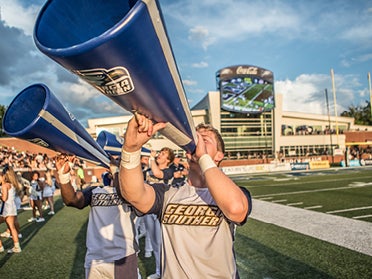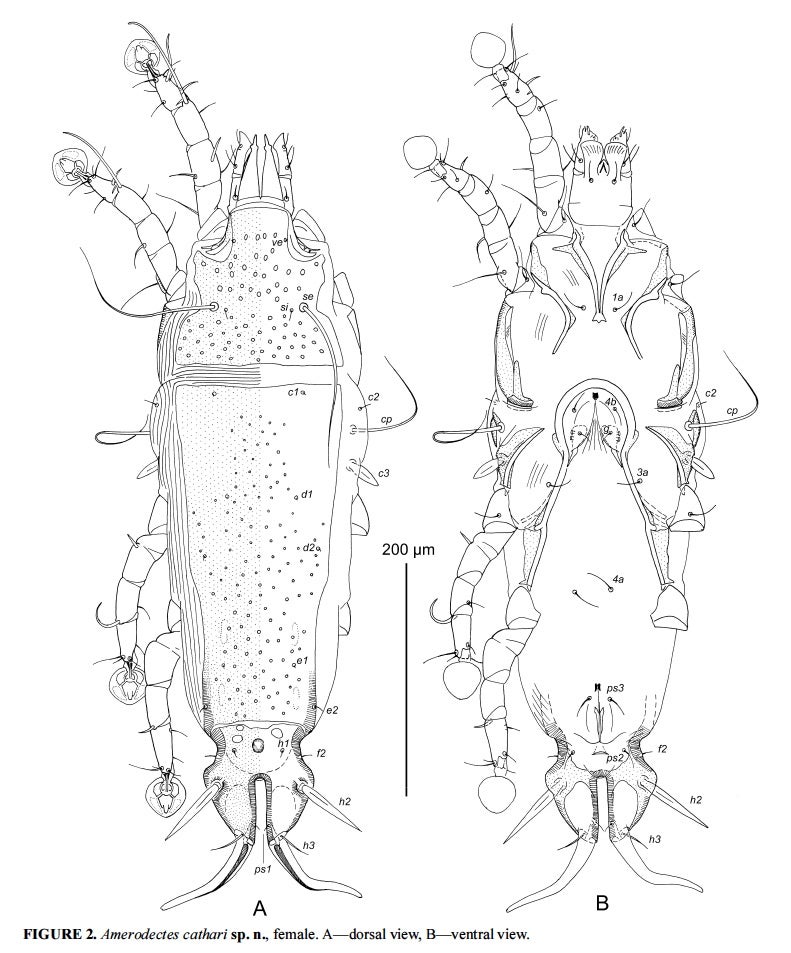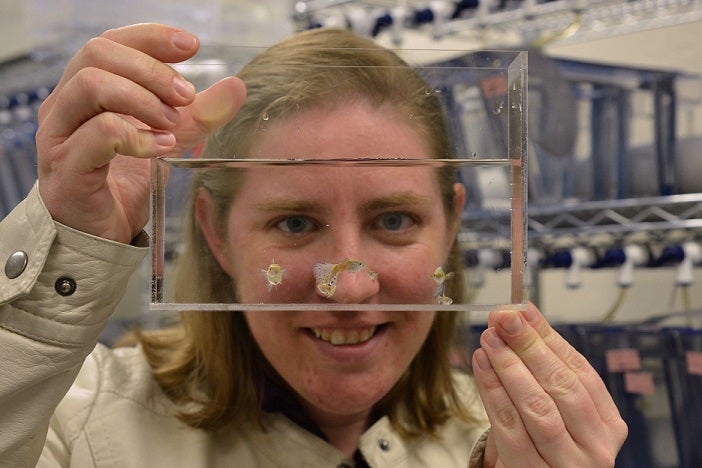Georgia Southern biology professor awarded grant to support minority students
Georgia Southern University Professor of Biology J. Checo Colón-Gaud, Ph.D., is part of a team of researchers awarded a $2 million grant from the National Science Foundation to support training and experiences for underrepresented minority students and early career scientists in the field of freshwater science. Funds for the project called “Emerge” will be distributed over the next five years.
Georgia Southern student named Goldwater Scholar
Flowers, for many, may simply be a nice gift for a loved one or something to stop and smell along the way, but to Honors Program biology student Andrea Appleton, they are a window into the intricacies of daily life. Appleton’s research in botany and floral evolution were recognized this year when she was named a Goldwater Scholar, the highest national award for undergraduate students in the STEM majors.
Georgia Southern student named Goldwater Scholar
Flowers, for many, may simply be a nice gift for a loved one or something to stop and smell along the way, but to Honors Program biology student Andrea Appleton, they are a window into the intricacies of daily life. Appleton’s research in botany and floral evolution were recognized this year when she was named a Goldwater Scholar, the highest national award for undergraduate students in the STEM majors.
Graduate student awarded scholarship for independent study in marine science
Erin Arneson, a graduate student in the James H. Oliver Jr., Institute for Coastal Plain Science (ICPS) and Department of Biology, was one of five students selected for the Dr. Nancy Foster Scholarship.
The scholarship is administered by the National Oceanic and Atmospheric Administration’s Office of National Marine Sanctuaries and provides funding for independent graduate level studies in a wide array of marine sciences. Arneson’s research revolves around the impacts of ocean acidification on corals that are abundant on the rocky hard bottoms that occur off the coast of Georgia. Ocean acidification happens when seawater absorbs carbon dioxide and increases its acidity.
Arneson, who is advised by Daniel Gleason, Ph.D., biology professor and Director of the ICPS, does research in close collaboration with the staff at Gray’s Reef National Marine Sanctuary, which is one of the largest near-shore, live-bottom reefs in the Southeastern United States.
Georgia Southern biology professor gives presentation at Critical Care Nurses Conference
Biology professor Ed Mondor, Ph.D., and his brother Eugene Mondor, who is a registered nurse, recently gave a talk at the American Association of Critical Care Nurses — National Teaching Institute & Critical Care Exposition in Orlando.
Their talk, entitled “Got the Travel Bug? When Tropical Diseases Aren’t Just Tropical,” focused on the insect-vectored tropical diseases Typhus, Chagas, Zika, Dengue and Malaria, which are showing up in critical care patients with increasing frequency in North America as international travel increases.
The presentation featured insects of medical importance, the diseases they transmit and the effects of insect transmission on human health, as well as key physical assessment findings, laboratory investigations and summarized first-line management strategies for critically-ill patients. More than 8,500 critical care nurses attended the exposition.
Georgia Southern graduate student identifies two new species of African ticks
While most people tend to avoid ticks, Jackson Tomlinson, a graduate student in the Department of Biology finds them fascinating and beautiful. His interest in the parasites was recently rewarded with the discovery of two species of ticks that are entirely new to science.
Two Georgia Southern professors selected to work at National Science Foundation
Two Georgia Southern University professors have been selected to work at the National Science Foundation (NSF) at the same time this year.
Laura B. Regassa, professor of biology, Ph.D., is currently serving as director of the Innovations in Graduate Education program at the foundation. She will stay for a fourth year in 2019, which is unusual at the NSF, as faculty typically rotate in for three years.
Biologists describe eight new species from the Georgia Southern Statesboro Campus
Eight new species of feather mites that have never before been described anywhere have been identified on the Georgia Southern University campus in Statesboro. How do eight unknown species go undetected for so long? They are very small and live in a surprising location.
Biology faculty develops accessible, hands-on experiments to teach evolution
Being an evolutionary biologist is no longer just for professionals. Georgia Southern Department of Biology Professor Emily Kane, Ph.D., has developed a simple kit that allows grade school students to become scientists in their own classrooms.



